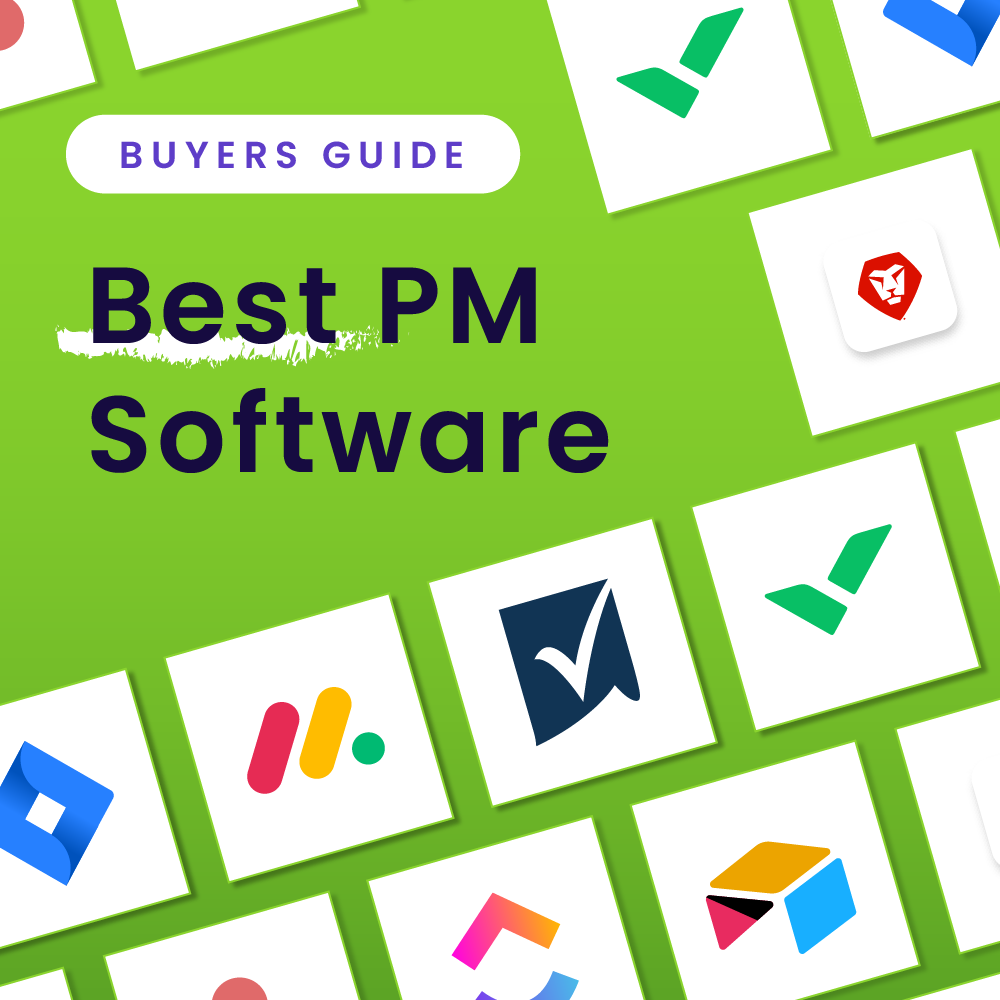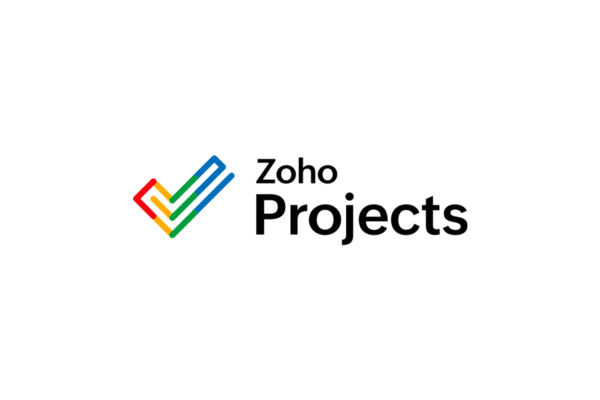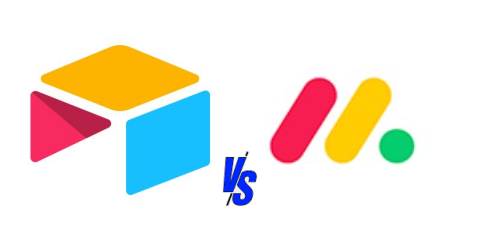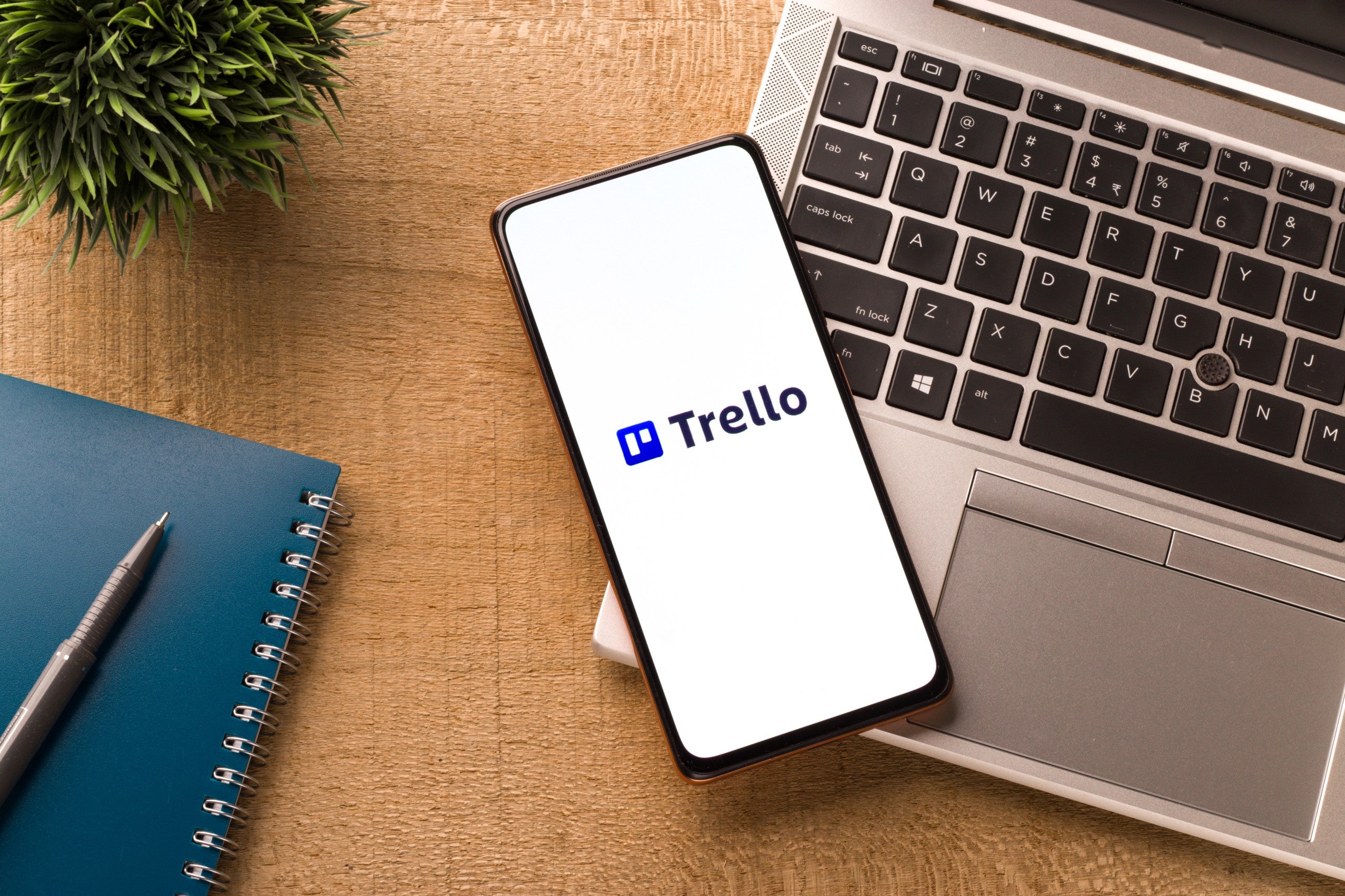Notion is a full-scale project management solution best for new entrepreneurs and small teams whose project management and tracking needs may be complex. Trello, on the other hand, is a highly visual Kanban-based workflow and project management tool ideal for teams of virtually any size. But how do you know which one has the right features for you?
| Key Feature | Our Pick |
| Charts & Data Visualizations |  |
| Team Collaboration & Usability |  |
| Customer Service & Support |  |
| Free Plans |  |
| Paid Plan |  |
FAQs: What is Notion? What is Trello?
Notion vs. Trello: Key Project Management Features Compared
Both Notion and Trello have many different features centered on project management. Some of the key project management features seen in both solutions include:
- Project tracking via individual cards and Kanban boards
- Support for multiple digital workspaces
- Access to premade templates
- Compatibility with various third-party apps and integrations
Notion and Trello are relatively similar when comparing standard project management functionality. But there are significant differences in how each visualizes work for your team.
Work Visualization, Charts & Data Visualizations
Our Pick: Notion
Data on work timing, pace, effort and individual workloads is essential to the success of virtually any project. However, there is such a thing as too much data. Not only does an abundance of data increase the amount of times it takes to produce useful information, but it can cause confusion amongst your entire team.

With Trello, the dashboard view automatically aggregates details like task due dates, which Trello cards (tasks) have already been assigned, and how many cards (which represent work) are present in each list. This data then populate pre-configured charts and graphs. Individual charts and graphs can be removed or added as necessary, allowing you to customize your dashboard view to meet your needs. Spreadsheets, Gantt charts, and other visualizations are available for your Trello boards via Trello power-ups.
Unfortunately, Notion doesn’t really measure up to Trello when it comes to native charts and data visualizations. As such, the majority of Notion’s charts and visualizations originate from their third-party integrations and plugins. However, Gantt charts are easily created from any workflow by adding the Timeline view to a Notion database.
Team Collaboration & Usability
Our Pick: Trello
It’s impossible to run a successful project without teammate collaboration. Your entire team, including those stakeholders outside the project team — typically those designated as Informed (I) on your RACI chart or RACI Matrix — needs to be familiar with your chosen project management platform. So the ease with which teams can start using a project management system
Both Notion and Trello excel in enabling collaboration and empowering teams, but they vary quite a bit in terms of overall usability.
Notion’s user interface is sleeker and more modern when compared to Trello’s, but Notion’s user interface definitely has a steeper learning curve. The simplicity of Trello’s UI is ideal for individuals and teams that aren’t so tech-savvy, but those who take the time to learn the nuances of the Notion platform will likely find Notion’s a more versatile and rewarding app in the end.
Customer Service & Support
Our Pick: Trello
Notion and Trello provide exceptional customer service. They both maintain comprehensive online help centers, complete with FAQ pages and helpful articles, and they boast extensive online communities. If you can’t find a resolution to your particular issue, you can reach their respectivecustomer support teams via email. Notion’s customer support team is also available via instant messaging, although their response time varies.
In the debate of Trello vs. Notion, Trello takes its online support one step further by giving users the detailed system status at any time. Not only does this let you know if any specific Trello services are offline, such as their API, their ticketing system, or the Trello platform itself, but they provide a log of recent incidents, and show uptime for Support as well. This is incredibly helpful when troubleshooting connectivity issues between your network and Trello.
Benefits & Pricing
Since Notion and Trello offer many similar features, it’s not surprising to see almost the same pricing between the two. Both of these project management tools offer free plans – which provide limited functionality – and their pricing plans provide varying levels of service.
Free Plans
Our Pick: Notion
The free plan for either Notion or Trello is only good for individuals and small teams. For access to the entire range of services for either one, you’ll have to subscribe to one of their pricing tiers. Nonetheless, their free plans do offer useful project management features – as limited as they may be.
- Notion: Notion’s free plan lets you create and use an unlimited number of pages. It also preserves page history for seven days and allows you to invite up to 10 guests. However, file uploads are limited to 5 MB in size.
- Trello: Trello’s free plan supports unlimited cards, lists, and power-ups. However, teams are limited to 10 total Trello boards, individual files are only up to 10 MB, and Trello’s built-in automation functionality is extremely limited.
Both free plans allow you to try out each service before committing to one or the other. But Notion’s unlimited pages give you room to grow.
Paid Plans
Our Pick: Trello
Apart from their free service, both Notion and Trello offer three separate pricing plans to accommodate various organizational needs and teams of different sizes. Each successive pricing tier builds on the one before it, so you’ll gain access to all of the features in your chosen tier as well as those in the lower-priced plans.

The paid service plans offered by Notion provide unlimited blocks for teams, unlimited file uploads, extended time limits for page history, access to private teamspaces, advanced security, the ability to invite additional guests, and more. Current plans include:
- Plus: $8 per user per month (billed annually)
- Business: $15 per user per month (billed annually)
- Enterprise: Contact Notion for a demo and custom price quote
Additionally, users can connect Notion AI to any plan for an additional $8 per user per month when billed annually. This price increases to $10 for users with monthly billing.
Likewise, Trello’s paid service plans build on top of the free service by introducing enhanced functionality at every level.

These enhancements include support for unlimited boards, advanced checklists, custom fields, unlimited data storage, access to additional data views, advanced security features, and more. Trello’s current service plans include:
- Standard: $5 per user per month (billed annually)
- Premium: $10 per user per month (billed annually)
- Enterprise: $17.50 per user per month (billed annually)
Trello’s highest-priced plan is fully scalable to meet the needs of larger teams,with the price per user decreasing as the number of users increases.
Boiling these pricing charts down, Trello’s most basic plan costs $5/user/month when billed annually. Notion’s per user/per month price is $8. Notion definitely provides more functionality for the money, but at about 30% less, Trello beats Notion in pricing on its paid plans.
Notion vs. Trello: What is the Better Project Management Tool?
Determining the better project management tool really depends on your organizational, project, and team needs. While Notion provides a more robust and comprehensive project management experience, Trello is great for small teams who are already using Kanban-style boards and juggling multiple projects daily. If you absolutely can’t decide between the two, you can always get the best of both worlds by integrating Notion and Trello together.







